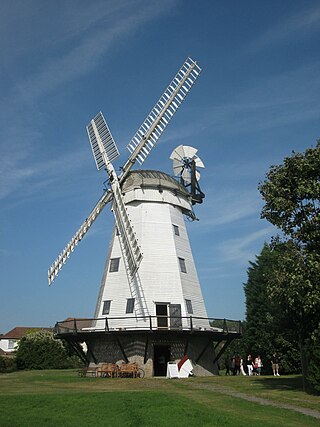
Upminster Windmill is a Grade II* listed smock mill located in Upminster in the London Borough of Havering, England. It was formerly known as Abraham's Mill and was in Essex when built. Between 2016 and 2023 the mill was restored to working order and a visitor centre was constructed. The mill and visitor centre are open to the public at selected times.

New Mill is a Grade II listed smock mill in Northbourne, Kent, England that was built in 1848 and which has been converted to residential accommodation.

White Mill is a smock mill west of Sandwich, Kent, England that was built in 1760. The mill has been restored and is open to the public as part of the White Mill Rural Heritage Centre. The museum also includes the miller's cottage, which has been furnished to appear as it did between 1900 and 1939. Other displays in the outbuildings include farming and craft tools, wheelwright and blacksmith workshops.
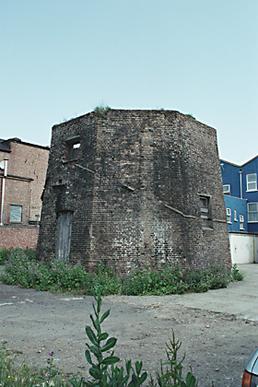
Great Mill or Ride's Mill is a Grade II listed smock mill just off the High Street in Sheerness, Kent, England, that was demolished in 1924, leaving the brick base standing. It now has a new smock tower built on it as residential accommodation.
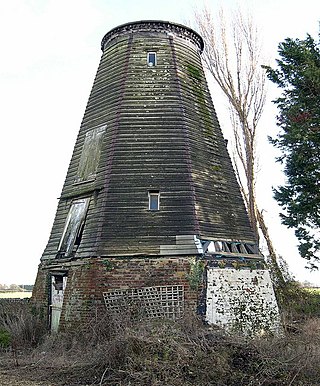
Somerley Mill is a grade II listed smock mill at Earnley, Sussex, England, which is under restoration.

Blackdown Mill or Cherry Clack Mill is a grade II listed smock mill at Punnetts Town, East Sussex, England, which has been restored.

Gibbet Mill, Tillingham Mill, Barry's Mill or New Mill is a grade II listed cosmetically reconstructed smock mill at Rye, East Sussex, England. Today it serves as bed and breakfast accommodation.
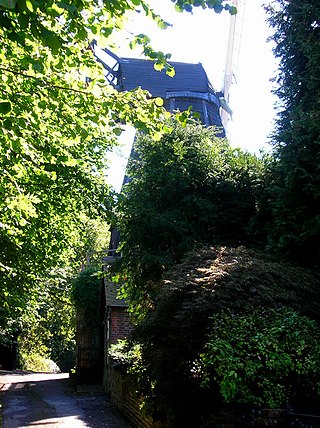
Meeten's Mill is a grade II listed smock mill at West Chiltington, Sussex, England, which has been converted to residential use.

Terling Windmill is a grade II listed Smock mill at Terling, Essex, England, which has been converted to residential use.

South Ockendon Windmill was a Smock mill at South Ockendon, Essex, England which collapsed on 2 November 1977.
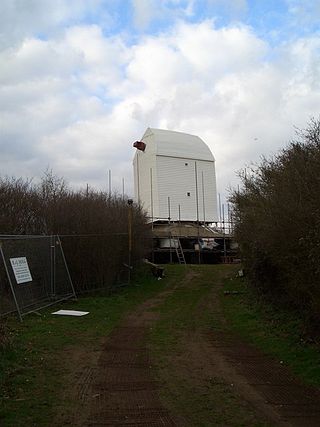
Drinkstone Windmills are a pair of windmills at Drinkstone, Suffolk, England. They consist a post mill and a smock mill. The post mill is Grade I listed and the smock mill is Grade II* listed. The mills were known as Clover's Mills as they were always worked by the Clover family.

Lower Mill or Opposition Mill is a Grade II* listed smock mill at Dalham, Suffolk, England which has been preserved.

Collis Mill is a Grade II* listed smock mill at Great Thurlow, Suffolk, England, which has been restored.
Upper Mill or Walton Mill is a Grade II listed smock mill at Walton, Suffolk, England, which has been conserved.
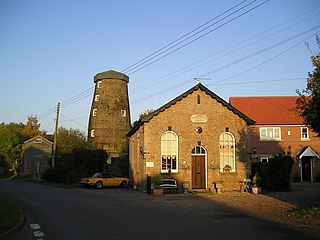
Buxhall Mill is a tower mill at Buxhall, Suffolk, England which has been converted to residential accommodation.

Chilton Street Mill is a tower mill at Clare, Suffolk, England which is derelict.

Tutelina Mill, also known as Clarke's Mill, is a Grade II listed tower mill at Great Welnetham, Suffolk, England which has been conserved.

Skoulding's Mill is a Grade II listed tower mill at Kelsale, Suffolk, England which has been converted to residential accommodation.

Lound Mill is a tower mill at Lound in the English county of Suffolk which has been converted to residential accommodation.
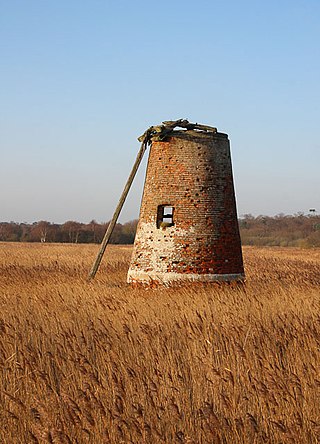
Westwood Marshes Mill is a Grade II listed tower mill at Walberswick, Suffolk, England which is derelict.




















